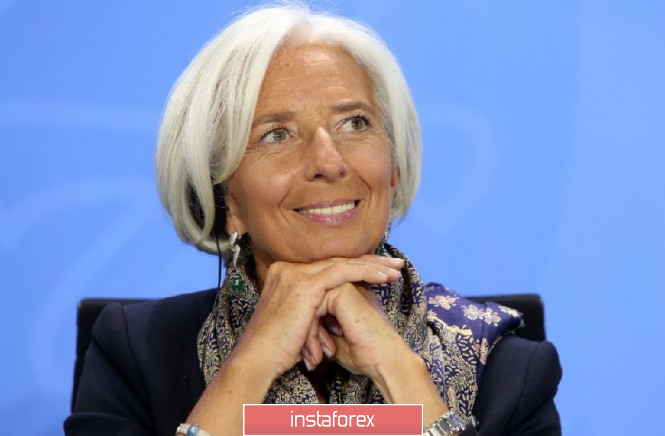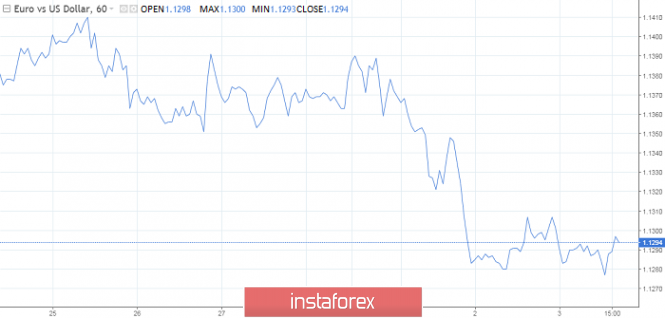
European leaders have decided on the candidacy for the post of head of the ECB. In October, the current IMF chief Christine Lagarde will take on the baton from Mario Draghi. This news came yesterday near the end of the US session and put pressure on the euro, which was trying to grow on the news of the ECB's refusal to cut rates in July.

It is expected that Lagarde will take an aggressive incentive policy from Draghi. She will become not only the first woman to head the ECB, but also the first head of the central bank without experience in this field. This already raises questions about gaining the same level of confidence in the global economy as Draghi.
However, this is unlikely to be something surprising or shocking. For example, the Federal Reserve, for the first time in 30 years, was headed by a man without professional economic education. In addition, Jerome Powell can not boast the same rich experience in monetary policy, as Janet Yellen.
It should be noted that the initial decline in the euro, although it was small, indicates the desire of markets to see someone more experienced in monetary policy in this position. But the appointment has already happened, and this process does not stop.
Christine Lagarde is absolutely not the silent central banker of the old school, so you should get ready for a lot of intrigue and instability. Since Lagarde is primarily a politician, she is more likely to rely on ECB staff. That is, its decisions may depend on the ECB chief economist Philip Lane, his influence on the policy of the regulator will be significant. Lane's recent comments signaled asset purchases.
Unexpected turn in the acute period
Of course, the choice in favor of Lagarde - a surprise for many. In recent months, speculations have been circulating around the market for potential candidates such as the head of the Bundesbank, Jens Weidmann, representatives of the Bank of France Benoit Coeur and Francois Villeroy. Erkki Liikanen, former head of the Bank of Finland, was also trying on the role of the head of the ECB.
In normal times, managing monetary policy is not difficult. Now everything is different. The financial world is full of surprises and uncertainties, and besides there are no starting points, and Lagarde has had mistakes in the past.
A French court in 2016 found her guilty of professional negligence, while Lagarde held the post of a finance minister. The punishment was not established, since, according to the court, the decision was made in the context of the role it played in the country's struggle against the global financial crisis.
Not so long ago, Draghi spoke about the possibility of softening policies in order to stimulate inflation in the direction of 2%. Given that the deposit rate is already in a rather deep negative, such a move could harm the banks that have to pay the ECB for keeping their funds on its balance sheet.
Markets are nervous
Lagarde at the beginning of her role as head of the ECB will be without significant support. The three main architects of the regulator's incentive policy for the asset purchase program, lower rates and the provision of cheap long-term loans to banks have either left the central bank or will do so soon. So, Mario Draghi leaves at the end of October, Coeure's term expires at the end of the year, and former chief economist Peter Praet resigned a few weeks ago.
This alignment of forces may aggravate financial markets, given that ECB Vice President Luis de Guindos, who came last year, also has no experience in the central bank.
If the European regulator is serious about fresh incentives, then it's more likely to happen before Lagarde arrives. This will somewhat relieve the pressure on her at the beginning of the journey.
The material has been provided by InstaForex Company - www.instaforex.com